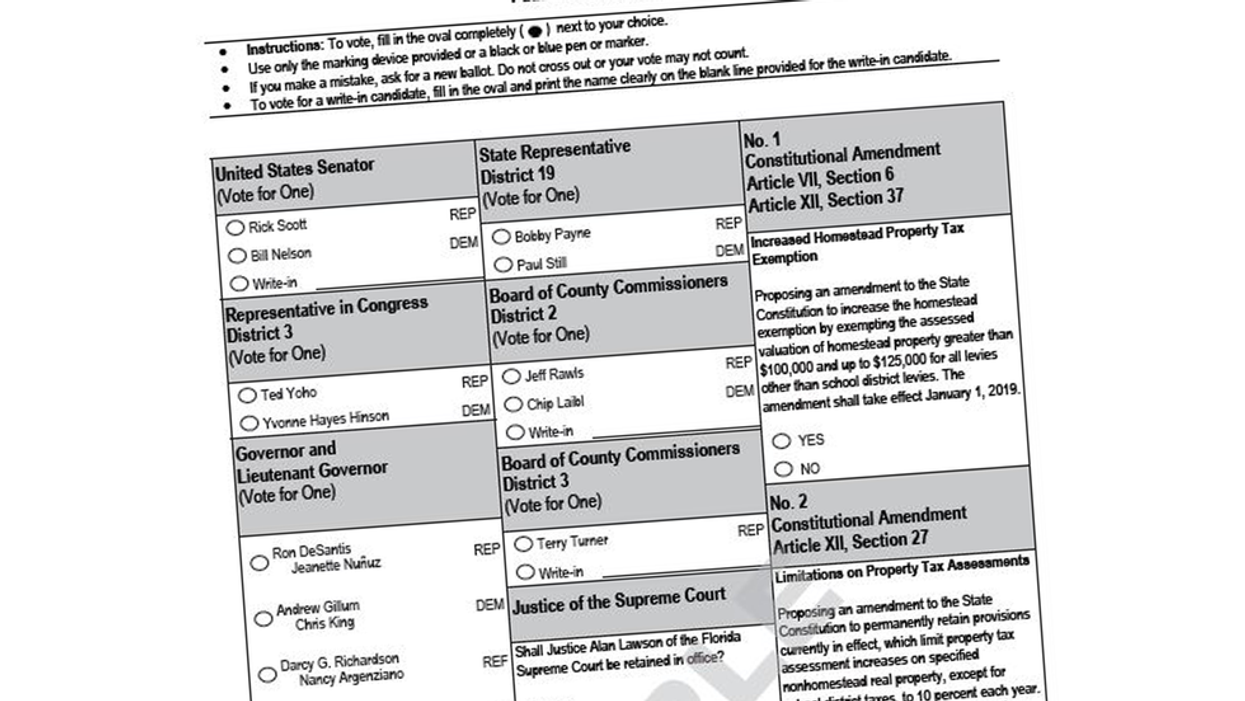This story was updated Nov. 19 with additional information.
Democratic candidates should get a shot at the most prominent spot on the ballot even in reliably red states, a federal judge has ruled in a setback for Republican efforts to hold on to that advantage in bellwether states across the country next year.
The decision came in a challenge to a Florida law mandating that candidates of the same party as the governor get listed first on the ballot.
That suit was among the first filed by Democrats as part of a campaign to challenge proposed 2020 election procedures in red states that have been trending toward purplish blue. Two weeks ago the party's national campaign organizations filed suits against similar ballot-primacy laws in Arizona, Georgia and Texas.
Those cases could be influenced by the precedent set down by federal Judge Mark Walker of Tallahassee, who held Florida's law unconstitutional on Friday.
"By systematically awarding a statistically significant advantage to the candidates of the party in power, Florida's ballot order scheme takes a side in partisan elections," he wrote, and the First and 14th amendments to the Constitution do not allow "a state to put its thumb on the scale and award an electoral advantage to the party in power."
The state vowed to appeal. The judge gave Florida's Republican secretary of State, Laurel Lee, two weeks to inform the state's 67 counties that the current law is unconstitutional -- and gave Lee three weeks to come up with a new plan
Evidence at a trial this summer detailed the benefitsof being the first candidate listed on the ballot, which political operatives have nicknamed the "primacy effect," the "windfall vote" and the "donkey vote." After looking at elections in the past four decades, one expert testified that first-listed candidates in Florida have gained an average advantage of 5 percentage points — more than enough to be dispositive in a place where the margin in statewide contests recently has routinely been 1 point or less.
"Although no single raindrop bursts a dam, and a single small transaction rarely is the sole cause of a bankruptcy, the dam still fails and the debtor becomes insolvent," Walker wrote. "Similarly, candidate name order effects are not the only reason elections are won and lost, but they do contribute substantially to candidates' successes or failures at the polls."
Republicans have held the governorship since 1999, meaning they've had the top ballot line for every race each of the past 10 election cycles.
Florida has voted for the presidential winner six straight times, and its 29 electoral votes will once again be the third biggest prize next November — after reliably Democratic California and potentially up-for-grabs Texas, which has had a GOP governor for two straight decades. Democrats are sounding bullish about contesting the 38 electoral votes in that state, the 16 in Georgia and the 11 in Arizona — plus a total of four Senate seats in the states with the other "donkey vote" suits.
While Walker's ruling is on appeal, there's no clarity about when or how the top line in Florida will be assigned in 2020.
The case would go next to the 11th Circuit Court of Appeals, which also hears appeals from Georgia. Texas and Arizona are in different appeals circuits.




















Trump & Hegseth gave Mark Kelly a huge 2028 gift